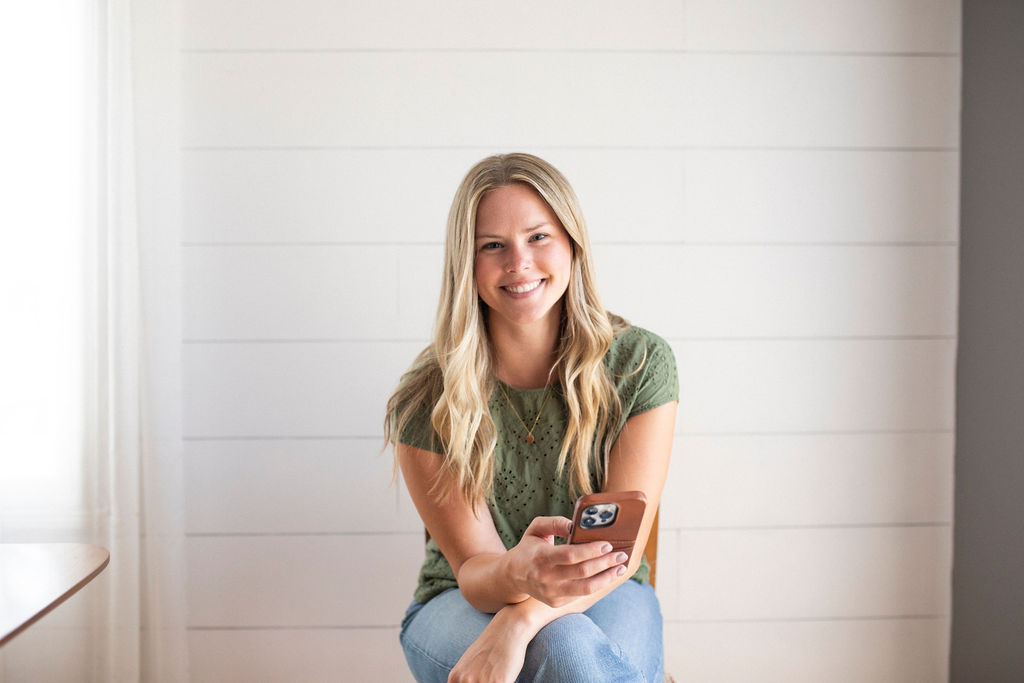We recently connected with Lydia Storie and have shared our conversation below.
Lydia, we’re thrilled to have you on our platform and we think there is so much folks can learn from you and your story. Something that matters deeply to us is living a life and leading a career filled with purpose and so let’s start by chatting about how you found your purpose.
My purpose is ever-evolving. I credit the combination of two life-altering events for leading me to where I am now: becoming a parent and a global pandemic. Before coming to Caring Across Generations, I spent more than a decade building a career as a creative executive in film and TV. The potential for great storytelling to drive new understandings and empathy across differences always motivated me, but, for a lot of reasons, by 2020 I was feeling increasingly more adrift from that guiding light in my day to day.
As a new mom, working full-time without child care due to Covid, and grappling with the idea of work taking my time and attention away from my baby, I realized I needed to do something that really made me proud to show up to work each day. There were many things I loved about the career I was building, but I felt in my heart that I needed a change. I was looking for a different kind of personal fulfillment in my career.
When the opportunity to join Caring Across Generation’s culture change team came up, I felt butterflies in my chest. The idea of working with entertainment creators but with the specific purpose of shifting hearts and minds on a really important social issue – one that is personal for me – was exciting. It spoke to my own deeply held values. Pivoting to a new field was incredibly nerve wracking, but now, I get to use my same expertise and skills to work with a lot of the same people I used to work with, just from a different vantage point. I have that sense of purpose and fulfillment that I was craving. It’s an exciting time to sit at the intersection of advocacy and content creation.
Great, so let’s take a few minutes and cover your story. What should folks know about you and what you do?
I work with screenwriters, producers and executives to help make our film and TV stories more “care-inclusive.” Caring Across wants to uplift the types of care experiences that are happening in millions of homes across America, but that we don’t actually see on our screens at nearly the level that they exist in reality. More nuanced and expansive care representation on screen matters because it directly impacts how we as a society collectively value and support everyone who has care needs or responsibilities – older adults, disabled people, family caregivers, professional care workers, and even parents.
The fact is we all need or provide care in some way at different points in our lives. More than 53 million people across the country — roughly one in five adults — currently provide unpaid care for someone in their lives. (Source). Many of us feel like we have personally failed when the people in our lives can’t get the care they need, or we’re burning out, when in reality it’s a systemic failure. Hundreds of thousands of people eligible to receive care in their communities are on long Medicaid waitlists for services, which are exacerbated by the direct care industry’s high turnover rate stemming from poverty wages.
For a long time care work has been largely invisible and unsupported because it takes place behind closed doors. But, that’s beginning to change. Last year was a watershed year for care in the U.S. President Biden signed the most comprehensive set of actions that any administration has taken to make care more affordable and accessible for families while supporting care workers and family caregivers. Influencers and celebrities are sharing more openly about their own experiences with care. More films and TV shows are including care-related storylines than ever. All of this is shining a light on both the universality of our care journeys as well as the specificity of each of our experiences, which is helping more people feel seen and validated.
If you had to pick three qualities that are most important to develop, which three would you say matter most?
I think it’s important to have a practice of self-reflection, and to be willing to recalibrate based on what you learn about yourself as you grow.
Self reflection helped me discover my core values – what intrinsically matters to me, more than what I thought I “should” want in my career. And through self-reflection I also realized that I very much enjoy asking myself, “How does my work affect the bigger picture?” When you know what really matters to you or really excites you, it’s a little easier to adjust your path or your goals.
Having a circle of support is also key: I had to get comfortable reaching out to people for advice or tools as I was working through some of these bigger questions about what mattered to me. It’s so important to seek guidance from trusted people from all different aspects of your life, because I think it’s through the prism of a variety of conversations and feedback that you can start to tune into what really resonates with you.
What has been your biggest area of growth or improvement in the past 12 months?
I’ve been thinking a lot about how to continue moving from an individualistic mindset to an interdependent mindset and what that looks like in my daily life, personally and professionally. Individualism is so baked into our U.S. culture that I think, on a personal level, for a long time I internalized the idea of asking for help – at work or in life – from others as a weakness. I think this has affected my career and even my relationships. The instinct to handle things alone or the idea that I have to have all the answers myself is something I’m actively unlearning.
And I know I’m not the only person who feels this way: at Caring Across, we’ve researched what holds us back from having a more supportive culture and system of care in the U.S., and unsurprisingly, these big ideas of “pulling yourself up from your bootstraps” and “making your own way” are so pervasive that many who provide or need care have internalized and applied it to that dynamic as well. And when it becomes untenable – because caring for someone else was never meant to be an individual endeavor – it feels like a personal failing.
I’m thinking about how we can implement new behaviors and practices in our lives that celebrate and center our interdependence. And how can our culture and our stories help us do that? How can Hollywood – perhaps the greatest modern promoter of the “hero’s journey” – help us see heroism as a collective endeavor rather than always an individual one and feel the truth in the adage “a rising tide lifts all boats.”
Contact Info:








